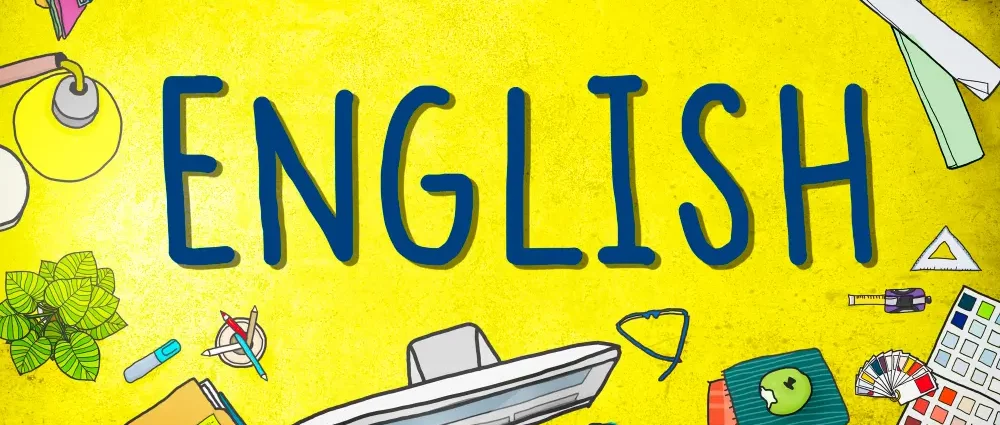Share this
When it comes to mastering a new language, barriers like the cost of traditional language schools or time constraints may prevent many of us from taking that first step. But what if I told you that despite these challenges, it is wholly possible to self-study and become fluent in English? With the right method, effort, and determination, it is possible to become fluent in English without ever going to a school or language class. We’ll outline how to do this in this article.
What You Have to Learn and Improve Through Self-Study

The essential components that you need to understand to become a competent English speaker are grammar, pronunciation, and listening and speaking skills.
English Grammar
Learning grammar when studying English is absolutely important. It is a crucial tool for enabling effective communication and comprehension. Understanding grammar rules allows you to correctly form sentences, apply appropriate tense, and use the right words. This, in turn, makes your message clearer and more concise.
The proper use of grammar plays a important role in reducing misunderstandings. Without a solid understanding of grammar rules, there’s a risk of misunderstanding others’ intentions or having your own intentions misinterpreted. While vocabulary allows you to express basic ideas, grammar helps you articulate more complex thoughts, making your conversations more engaging and meaningful to others.
Pronunciation
Pronunciation involves the correct articulation of sounds, stress, rhythm, and intonation of a language. This is a vital component when mastering English or any other language. English, in particular, presents complex phonetic structures and rules, including words that are spelled similarly but pronounced differently, or words whose meaning can change entirely based on subtle shifts in tone. Therefore, correct pronunciation greatly enhances both comprehension and communication. It helps learners accurately express their thoughts.
However, it’s not necessary to speak without an accent. Most individuals who begin studying English as a teenager or adult cannot completely lose their native accent. Instead, learners should aim to practice their pronunciation so it closely mirrors that of native speakers. As long as the pronunciation is close enough to how native speakers speak, others will be able to understand the leaner’s English.
Listening Skills
Honing your listening skills is essential when you’re learning English. Good listening abilities can aid in understanding other speakers’ intentions. It also helps you comprehend the subtle nuances of language like intonation, pronunciation, and various accents. When you understand others’ speech properly, you’ll be better equipped to respond appropriately in conversations. Without sufficient listening practice, even learners with strong reading and writing skills might have difficulty with understanding spoken English and participating in conversations.
Speaking Skills
Speaking is more than simply reading text aloud. It’s a complex activity that involves thinking what you want to say, combining words using grammar, and saying it aloud with suitable pronunciation. Combined with listening abilities, speaking skills enable learners to communicate with other English speakers. Speaking skills can only be developed through actual practice, such as engaging in conversations or delivering presentations.
How to Master English On Your Own
Step 1: Study Grammar and Vocabulary+

The first step to mastering English without going to school is to study grammar and vocabulary. The best way to do that is by using technology. Grammar and vocabulary form the fundamental building blocks of the English language. Without it, you are just a sitting duck. It is essential to take them head on before progressing to more complex linguistic aspects. Using digital resources such as apps or websites could be a great help in studying basic English grammar and learning new words.
One good app to use is ALULA. ALULA organizes its learning materials from easy to more challenging levels. This helps students in systematically developing their English proficiency, gradually escalating as confidence and knowledge build up. ALULA also uses an AI-powered English tutor that is designed to teach grammar.
One thing that is good at ALULA is that it uses a conversational style, where the student actively engages with the app. This interactive approach allows ESL students to not just study grammar, but also practice communication skills, such as speaking, listening, and pronouncing English words. In addition, there are lots of practice questions that are designed to really cement the understanding of the student.
Step 2: Practice Conversation

Once you have attained a basic knowledge of vocabulary and grammar, it is time to start having regular, active conversations. Practicing conversation not only improves your speaking skills but also allows you to practice the grammar and vocabulary you have learned. Be sure to continue learning grammar and new words while practicing conversation, so you can use more complex, nuanced English in conversation.
There are many spaces where you can have these practice conversations.
a) Practice with friends – If you have friends keen on honing their English skills, pair up and practice together. You can engage in simple conversations in English during meetings, building your confidence in the language.
b) Find language exchange partners or groups. Websites such as Tandem and Conversation Exchange are ideal places to find a language partner. In a language exchange, you teach your partner your native language. In turn, your partner teaches you English.
c) Join Facebook groups or forums about topics that interest you. Engage in conversations with native English speakers about topics you’re passionate about. Talking about the things that interest you can help you maintain your motivation in practicing English.
d) Use the ALULA app that’s mentioned earlier. This AI app lets you chat about topics that interest you. You are talking to an AI, so you don’t have to feel self-conscious about your accent or mistakes. It offers feedback and grammar corrections so you can improve faster.
e) Consider using language exchange apps like HelloTalk, where you can a language exchange partner and talk via the app. While you teach them your native language, the other person will teach you English. This set-up helps you improve your English and also allows you to make international friends.
Step 3: Immerse Yourself in English while repeating Step 1 and Step 2

The third step involves immersing yourself in the English language. After doing substantial work in English grammar, vocabulary, and speaking and listening skills, the next milestone to reach is to broaden your exposure to the language by incorporating English in all aspects of your life. This means actively seeking out English content such as watching English TV programs, streaming English YouTube videos, reading English books and news outlets, and exploring English blogs among others.
These English-media require you to have a significant understanding of English. Therefore, you should be at the intermediate level or above to understand and benefit from these resources. You should also continue learning new grammar rules and vocabulary, and continue to practice conversation to sharpen your listening and speaking abilities.
This immersion technique plays an important role in gaining fluency. You’ll pick up many expressions and idioms that native speakers love to use but may not be in any textbooks.
Step 4: Be amazed at how much your English has improved!
Well, this is not really a step, but it’s important to celebrate how much you have achieved. Try taking one of the standardized English tests to see how much you can score. Celebrating your achievement can help you maintain your motivation.
Final Words
If you learn English patiently using the aforementioned strategies, you will keep getting better every passing day. It might be slow at first, but don’t be de-motivated. Learning English independently is entirely possible, and many have achieved fluency through self-study. It’s time for your English prowess to shine!
Richard Zhang, M.Ed., is an educator and a software developer with a Masters degree in education from University of Toronto and an immense passion for education and learning. Until the pandemic, Richard owned an award-winning learning centre in Toronto. For 15 years, he has taught and mentored hundreds of elementary, middle school, and high school students succeed in academics. He is also an app developer specializing in web and mobile application in educational and business sectors.





